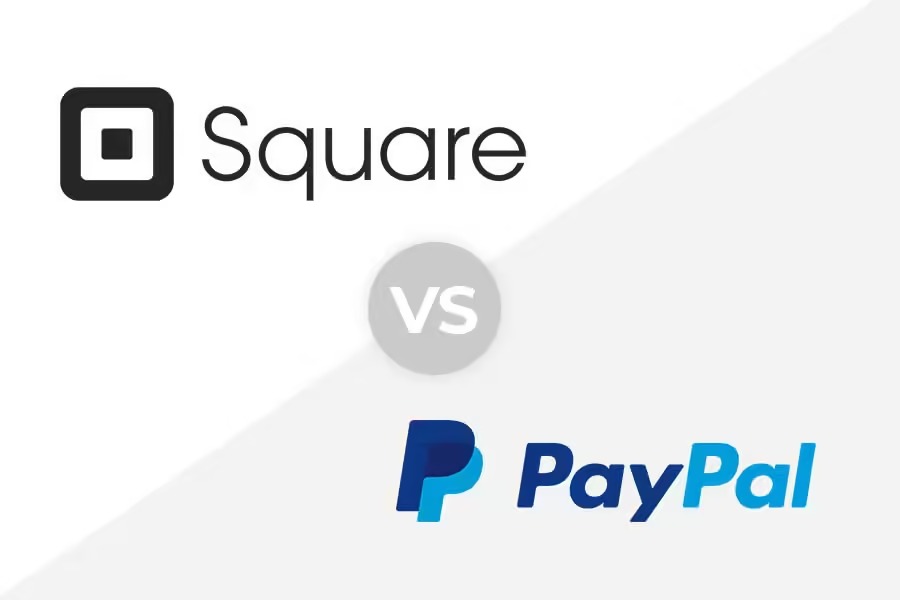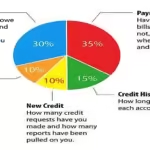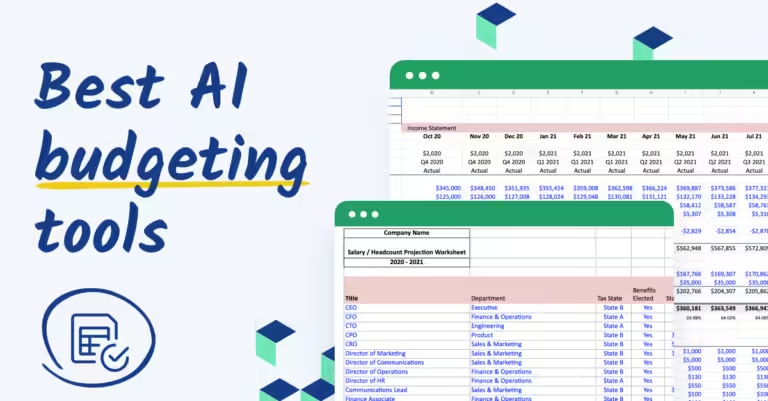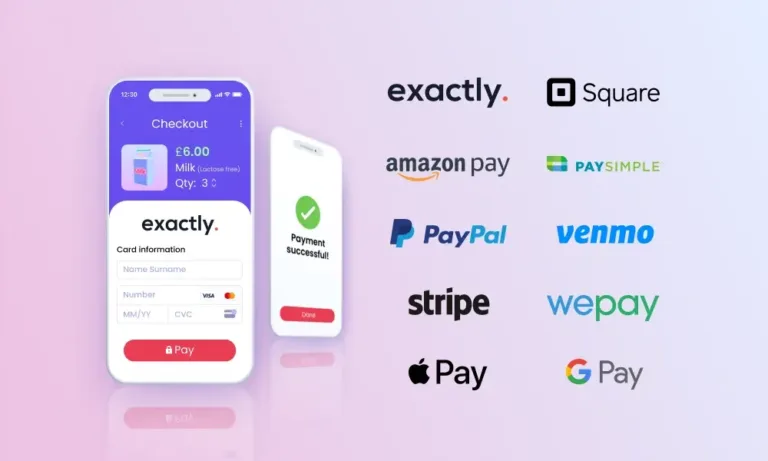Square Vs Paypal: Which Payment Processor is Right for You?
Square and PayPal are two popular payment solutions. Each offers unique features for businesses and individuals.
Understanding their differences helps in making the best choice for your needs. Comparing Square and PayPal reveals how each platform caters to specific business requirements. Both provide secure payment processing, but they differ in hardware options, fees, and additional services. Square, known for its comprehensive software and hardware platform, is designed to improve business efficiency and automate operations. It offers tailored solutions for industries like restaurants and retail. PayPal, on the other hand, is widely recognized for its user-friendly online payment system and extensive global reach. By examining their features, you can determine which payment solution aligns better with your business goals. Explore more about Square here.

Introduction To Payment Processors
Choosing the right payment processor is crucial for businesses. They handle transactions, ensuring smooth and secure payments. Two popular options are Square and PayPal. Let’s explore their features and benefits to help you make an informed decision.
Overview Of Square
Square is a comprehensive software and hardware platform designed to help businesses improve efficiency and automate operations. Trusted by millions of businesses worldwide, Square offers solutions tailored for various industries.
| Main Features | Details |
|---|---|
| Hardware and POS Systems | Facilitate easy, quick, and seamless selling anywhere. |
| Secure Payments | Accept payments securely from any location. |
| Order and Delivery Options | Click and collect, online ordering, local delivery, and shipping. |
| Custom-Tailored Product Suites | Solutions specifically designed for restaurants, retail, and beauty businesses. |
| Operations Management | Streamline operations across multiple locations, sales channels, and employees. |
| Cash Flow Management | Instant transfers for a small fee or free next-business-day transfers. |
| Team Management | Optimize team shifts and manage team operations securely. |
| Customer Engagement | Increase customer loyalty with centralized data and insights. |
| Advanced Reporting | Access powerful data for informed decision-making. |
| Revenue Diversification | Open new revenue streams and track profit margins with inventory management. |
Benefits:
- Automate and optimize business operations.
- Enhance customer loyalty with detailed data and insights.
- Custom solutions for different business types and needs.
- Manage multiple locations and sales channels effectively.
- Easy cash flow management with instant or next-business-day transfers.
- Efficiently manage team operations and shifts.
- Utilize advanced reporting for confident business decisions.
- Diversify revenue and track profit margins accurately.
Overview Of Paypal
PayPal is a widely recognized online payment system. It allows users to send and receive payments securely. PayPal supports various currencies and is used by millions around the world.
- Easy integration with e-commerce platforms.
- Secure payments with fraud protection.
- Supports multiple currencies.
- Instant transfers to bank accounts.
- Mobile app for managing transactions on the go.
- Customer support available 24/7.
Benefits:
- Convenient for online transactions.
- High level of security and fraud prevention.
- Global reach with multi-currency support.
- Quick and easy transfers to bank accounts.
- Manage transactions from anywhere with the mobile app.
Importance Of Choosing The Right Payment Processor
Choosing the right payment processor can significantly impact your business. A suitable processor ensures secure and efficient transactions. It also helps in managing cash flow and improving customer satisfaction.
Consider factors like security, ease of use, and features when selecting a processor. Square and PayPal both offer unique benefits. Understanding these can help you choose the best option for your business needs.

Key Features Of Square
Square is a powerful platform designed to help businesses streamline operations, increase efficiency, and open new revenue streams. Trusted by millions worldwide, Square offers various solutions tailored to different industries. Let’s explore some key features of Square.
In-person Payment Solutions
Square provides comprehensive in-person payment solutions, making it easy for businesses to accept payments securely from any location. Key features include:
- Hardware and POS Systems: Facilitates seamless transactions and quick selling anywhere.
- Secure Payments: Accepts payments securely with encrypted transactions.
- Order and Delivery Options: Offers click and collect, online ordering, and local delivery.
Online Payment Integration
Square’s online payment integration allows businesses to accept payments online with ease. Key aspects include:
- Custom-Tailored Solutions: Specific solutions for restaurants, retail, and beauty industries.
- Secure Transactions: Ensures secure online payments with advanced encryption.
- Flexible Payment Options: Supports multiple payment methods including credit cards and digital wallets.
Inventory Management
Square offers robust inventory management features to help businesses track and manage their stock efficiently. Highlights include:
- Real-Time Tracking: Monitor inventory levels in real-time.
- Automated Alerts: Receive notifications for low stock levels.
- Revenue Diversification: Track profit margins and open new revenue streams.
Square Dashboard And Analytics
Square provides advanced reporting and analytics tools through its intuitive dashboard. Key features include:
- Powerful Data: Access detailed reports for informed decision-making.
- Customer Insights: Enhance customer loyalty with centralized data.
- Scalability: Manage multiple locations and sales channels effectively.
Square’s suite of features makes it an excellent choice for businesses looking to optimize their operations and grow their revenue. With its comprehensive solutions, Square supports various industries, helping them thrive in a competitive market.
Key Features Of Paypal
PayPal is a global online payment platform that offers a range of features designed to cater to both businesses and individuals. Its versatility and extensive reach make it a popular choice for those looking to manage transactions efficiently and securely.
Global Reach And Acceptance
PayPal operates in over 200 countries and supports multiple currencies, making it a truly global payment solution. Businesses and individuals can send and receive payments from around the world, enhancing their ability to operate internationally.
- Supports 25+ currencies
- Accepted by millions of merchants globally
- Integrated with numerous online marketplaces and e-commerce platforms
Paypal Here For In-person Payments
PayPal Here allows businesses to accept in-person payments using a mobile card reader. This feature is particularly useful for small businesses, pop-up shops, and on-the-go services.
- Easy-to-use mobile card reader
- Accepts credit and debit cards
- Supports contactless payments and mobile wallets
Online Payment Gateway
The PayPal Online Payment Gateway integrates seamlessly with websites and online stores, enabling businesses to accept payments securely.
- Secure and reliable payment processing
- Supports a wide range of payment methods
- Customizable checkout experience
Paypal’s Invoicing And Subscription Tools
PayPal provides robust invoicing and subscription tools that help businesses manage recurring payments and create professional invoices.
- Create and send invoices easily
- Automate recurring billing for subscriptions
- Track payment status and manage customer information
Pricing And Affordability
Choosing the right payment solution can impact your business’s bottom line. It’s essential to understand the pricing structures of Square and PayPal. Here, we’ll compare the costs associated with each platform, helping you make an informed decision.
Square’s Pricing Structure
Square offers a straightforward pricing model. Here’s what you need to know:
- Transaction Fees: 2.6% + 10¢ per transaction for in-person payments.
- Online Payments: 2.9% + 30¢ per transaction.
- Instant Transfers: 1.5% per transfer. Free next-business-day transfers are also available.
- Custom Loan Offers: Based on Square sales, with specific terms and conditions.
Square’s pricing is transparent with no hidden fees. They offer custom solutions tailored to different industries, ensuring flexibility and scalability.
Paypal’s Pricing Structure
PayPal’s pricing can be more complex. Here’s a breakdown:
- Domestic Transactions: 2.9% + 30¢ per transaction.
- International Transactions: 4.4% + fixed fee based on the currency.
- Micropayments: 5.0% + 5¢ for transactions under $10.
- Monthly Fees: No monthly fees for a standard account. PayPal Pro costs $30 per month.
PayPal offers different rates for various types of transactions. This can be beneficial if your business deals with international customers or smaller payments.
Comparing Transaction Fees And Other Costs
| Feature | Square | PayPal |
|---|---|---|
| In-Person Payments | 2.6% + 10¢ | 2.9% + 30¢ |
| Online Payments | 2.9% + 30¢ | 2.9% + 30¢ |
| International Payments | Not specified | 4.4% + fixed fee |
| Instant Transfers | 1.5% | 1.5% |
| Monthly Fees | None | $30 for PayPal Pro |
Both Square and PayPal offer competitive rates for online payments. Square’s in-person payment rates are slightly lower. PayPal’s international rates and micropayment options might benefit specific businesses.
Understanding these fees and structures is crucial. It ensures you choose the best payment solution for your business needs.
Pros And Cons Based On Real-world Usage
When choosing between Square and PayPal, it is essential to understand their advantages and disadvantages based on real-world usage. Both platforms offer unique features tailored to different business needs. Below, we explore the pros and cons of Square and PayPal to help you make an informed decision.
Pros Of Square
- Comprehensive Platform: Square provides both software and hardware solutions, ideal for various businesses.
- Secure Payments: Accept payments securely from any location.
- Order and Delivery Options: Includes click and collect, online ordering, local delivery, and shipping.
- Custom Solutions: Tailored for specific industries like restaurants and retail.
- Cash Flow Management: Instant transfers for a small fee or free next-business-day transfers.
Cons Of Square
- Fee for Instant Transfers: Instant transfers come with a small fee.
- Loan Terms: All loans are subject to approval with specific terms and conditions.
Pros Of Paypal
- Widely Accepted: PayPal is globally recognized and trusted.
- Easy Integration: Integrate PayPal with various e-commerce platforms effortlessly.
- Multiple Payment Options: Accept credit cards, bank transfers, and PayPal balances.
- Buyer Protection: Offers buyer protection for eligible purchases.
- Low Entry Barrier: Easy to set up and start using immediately.
Cons Of Paypal
- Transaction Fees: PayPal charges transaction fees for each sale.
- Account Holds: Accounts may be held or frozen without notice.
- Currency Conversion Fees: Charges apply for currency conversions.
Ideal Users And Scenarios
Choosing between Square and PayPal depends on your business needs and size. Both payment processors offer unique features and benefits. Understanding the ideal users and scenarios for each can help you make an informed decision. This section will delve into the best use cases for Square and PayPal, as well as their suitability for small businesses and large enterprises.
Best Use Cases For Square
Square is ideal for small to medium-sized businesses in various industries. Its comprehensive platform includes hardware and software solutions designed to improve efficiency and streamline operations.
- Retail: Square’s POS systems make it easy to manage inventory, process sales, and track customer data.
- Restaurants: Custom solutions for order and delivery options, along with team management tools, are perfect for restaurant operations.
- Beauty and Wellness: Appointment scheduling, customer engagement, and secure payment processing are tailored for beauty businesses.
Best Use Cases For Paypal
PayPal is well-suited for e-commerce businesses and freelancers. Its primary strength lies in its integration with online platforms and ease of use for international transactions.
- E-commerce: Easy integration with major online platforms, making it simple to accept payments from customers worldwide.
- Freelancers: Secure and quick payment options, ideal for freelancers and consultants working with clients globally.
- Non-Profits: Donation tools and secure payment processing are perfect for non-profit organizations.
Which Processor Is Better For Small Businesses?
For small businesses, Square offers a comprehensive suite of tools to manage operations efficiently. Its hardware and software solutions are designed to help small businesses grow and streamline their processes.
| Feature | Square | PayPal |
|---|---|---|
| POS Systems | Custom-tailored for various industries | Limited POS options |
| Order and Delivery Options | Click and collect, online ordering, local delivery | Basic options |
| Team Management | Optimize shifts, manage operations | Basic tools |
Which Processor Is Better For Large Enterprises?
Large enterprises may prefer PayPal due to its extensive global reach and integration capabilities. PayPal offers robust security features and is widely recognized, making it a reliable choice for large-scale operations.
- Global Reach: PayPal’s widespread acceptance makes it ideal for international transactions.
- Integration: Seamless integration with major e-commerce platforms and accounting software.
- Security: Advanced security features protect both businesses and customers.
While both Square and PayPal offer unique advantages, the best choice depends on your business type and size. Square excels in providing comprehensive solutions for small to medium-sized businesses, while PayPal is a strong contender for large enterprises with a focus on global transactions and online sales.
Conclusion: Making The Right Choice
Choosing between Square and PayPal depends on your business needs. Square is great for small businesses with in-person sales. PayPal excels in online transactions and global reach.
Choosing between Square and PayPal depends on your business needs. Each platform offers unique features and benefits. Here’s a summary of their key differences, our final recommendations, and steps to implement your chosen payment processor.Summarizing Key Differences
| Feature | Square | PayPal |
|---|---|---|
| Hardware and POS Systems | Comprehensive hardware solutions for various industries | No dedicated hardware solutions |
| Secure Payments | Accept payments from any location securely | Secure payments with buyer protection |
| Order and Delivery Options | Click and collect, online ordering, local delivery, and shipping | Limited order and delivery options |
| Operations Management | Streamline operations across multiple locations | Basic operations management |
| Customer Engagement | Centralized data for customer insights | Basic customer engagement tools |
| Pricing | Small fee for instant transfers, free next-business-day transfers | Transaction fees apply |
Final Recommendations
If you need comprehensive hardware and POS systems, Square is the better choice. Square offers tailored solutions for various industries, including restaurants, retail, and beauty. It also provides advanced reporting and customer engagement tools. For businesses prioritizing secure payments with buyer protection, PayPal might be more suitable. PayPal offers a secure platform for receiving payments, but lacks the hardware solutions provided by Square.Steps To Implementing Your Chosen Payment Processor
- Research and Compare: Thoroughly research both Square and PayPal. Compare their features, benefits, and pricing.
- Sign Up: Visit the chosen platform’s website and sign up for an account. For Square, you can start here: Square.
- Setup: Follow the setup instructions provided by the platform. Configure your payment settings, shipping options, and any other necessary details.
- Integrate: Integrate the payment processor with your existing systems, such as your website or POS system.
- Test: Conduct a few test transactions to ensure everything is working smoothly. Address any issues that arise during testing.
- Launch: Once you are satisfied with the setup, start using the payment processor for your business transactions.
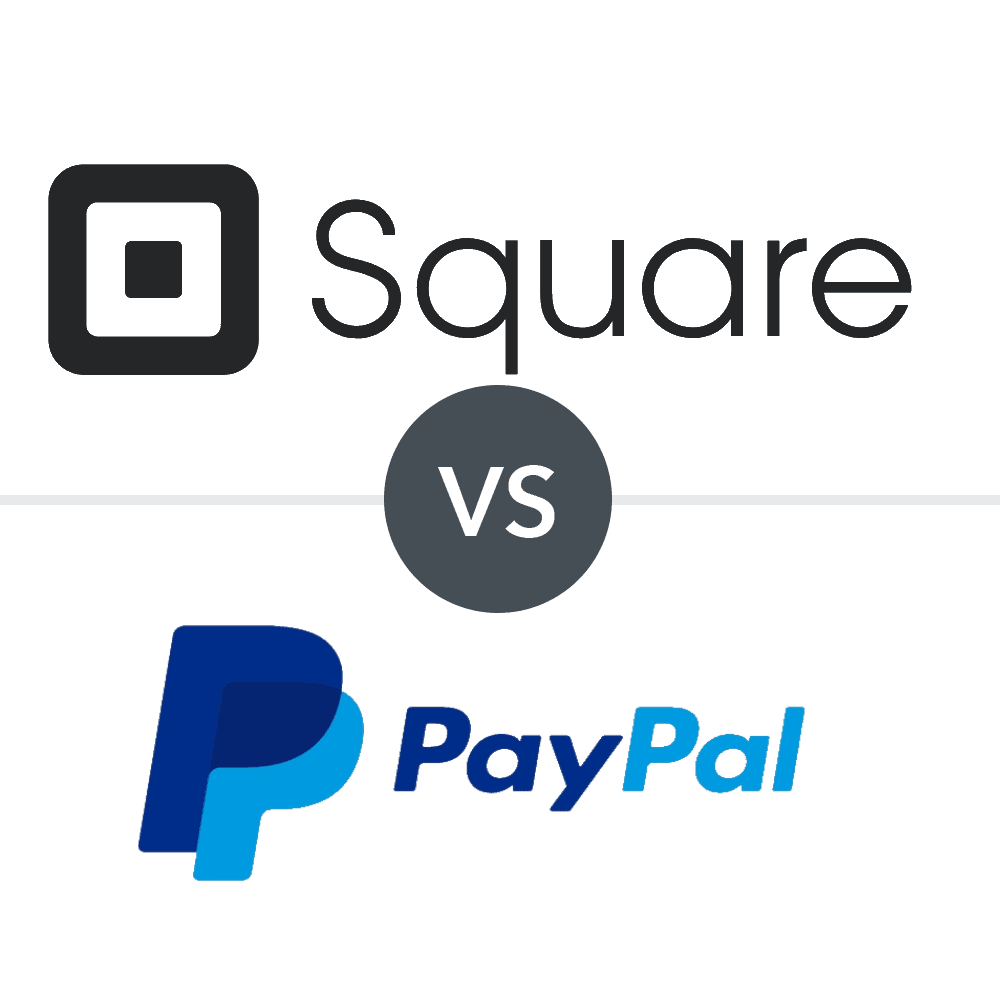
Frequently Asked Questions
What Are The Main Differences Between Square And Paypal?
Square focuses on point-of-sale systems for businesses. PayPal is primarily an online payment platform. Both offer unique features tailored to different needs.
Which Is Better For Small Businesses, Square Or Paypal?
Square is better for in-person transactions with its hardware solutions. PayPal is ideal for online sales due to its widespread acceptance.
Does Square Have Lower Fees Than Paypal?
Square and PayPal have similar fee structures. However, the total cost can vary based on your business’s transaction volume.
Can I Integrate Square And Paypal With My Website?
Yes, both Square and PayPal offer integration options. They provide plugins and APIs to connect with various e-commerce platforms.
Conclusion
Choosing between Square and PayPal depends on your business needs. Square offers comprehensive tools for business management and growth. PayPal provides simple, secure payment solutions. Both platforms excel in different areas. For detailed business solutions, consider Square. Explore their offerings here. Evaluate your requirements and pick the best fit for your business.

